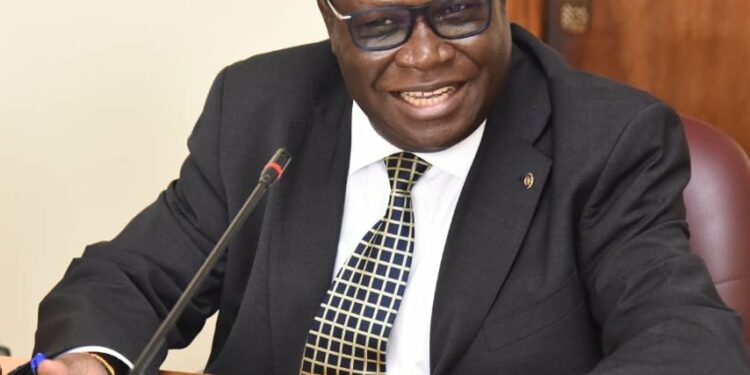The Minister of Justice and Constitutional Affairs,Norbert Mao, has called on the judiciary to address inefficiencies in handling criminal cases, which he says are driving a public perception of leniency and prompting reliance on military courts for justice.
Speaking on NTV’s morning show last week, Mao expressed concern over the growing practice of trying civilians in the General Court Martial, describing it as a “vote of no confidence” in the civilian judiciary.
“The judiciary must wake up and realize that the use of military courts for civilians is a reflection of frustration with the perceived softness of civilian courts on criminal suspects,” said Mao. He pointed out that military courts are seen as “hard courts,” deliberately intended to deter crime and convey a strong message that law-breaking will not be tolerated.
Mao emphasized the constitutional issues surrounding the trial of civilians in military courts, referencing a Constitutional Court ruling that declared the practice unconstitutional. However, the ruling was appealed to the Supreme Court, leaving the matter unresolved.
“The Supreme Court must provide a final pronouncement on this matter,” said Mao. “The sooner this is done, the better, so that the issue is settled once and for all. The government will have no choice but to abide by the Supreme Court’s decision.”
He added that the judiciary must enhance its capacity to handle cases effectively, particularly those involving violent crime and corruption, to restore public confidence in the legal system.
Addressing the situation in Karamoja, where over 3,000 armed cattle rustlers have been prosecuted in military courts, Mao acknowledged the unique challenges in the region. “Karamoja is not a normal situation. These are people wielding guns, and the military court has been instrumental in restoring order,” he explained. However, he cautioned against using such measures as a blanket solution for all criminal cases.
Mao also highlighted the case of Prince Lukum Bucha, a Democratic Party leader from Kasese, who spent over a year in detention and was tried in a military court. He lamented the lack of transparency and the unresolved nature of such cases, arguing that they illustrate the broader problem.
The minister addressed President Museveni’s longstanding criticism of bail, particularly in cases involving violent crime. He acknowledged the President’s concerns that bail is perceived as undermining justice but stressed the constitutional importance of the right to bail.
“Bail is meant to facilitate justice, not defeat it,” Mao said. He suggested that courts prioritize bail applications to ensure timely justice and reduce the risk of mob justice, which he described as a more dangerous form of lawlessness.
Mao urged the judiciary to take decisive action in addressing public concerns about delays and perceived leniency. “The ball is squarely in the hands of the judiciary. Laws are not suggestions, and compliance is mandatory,” he said, emphasizing the need for judicial officers to uphold their constitutional mandate.
Do you have a story in your community or an opinion to share with us: Email us at editorial@watchdoguganda.com










